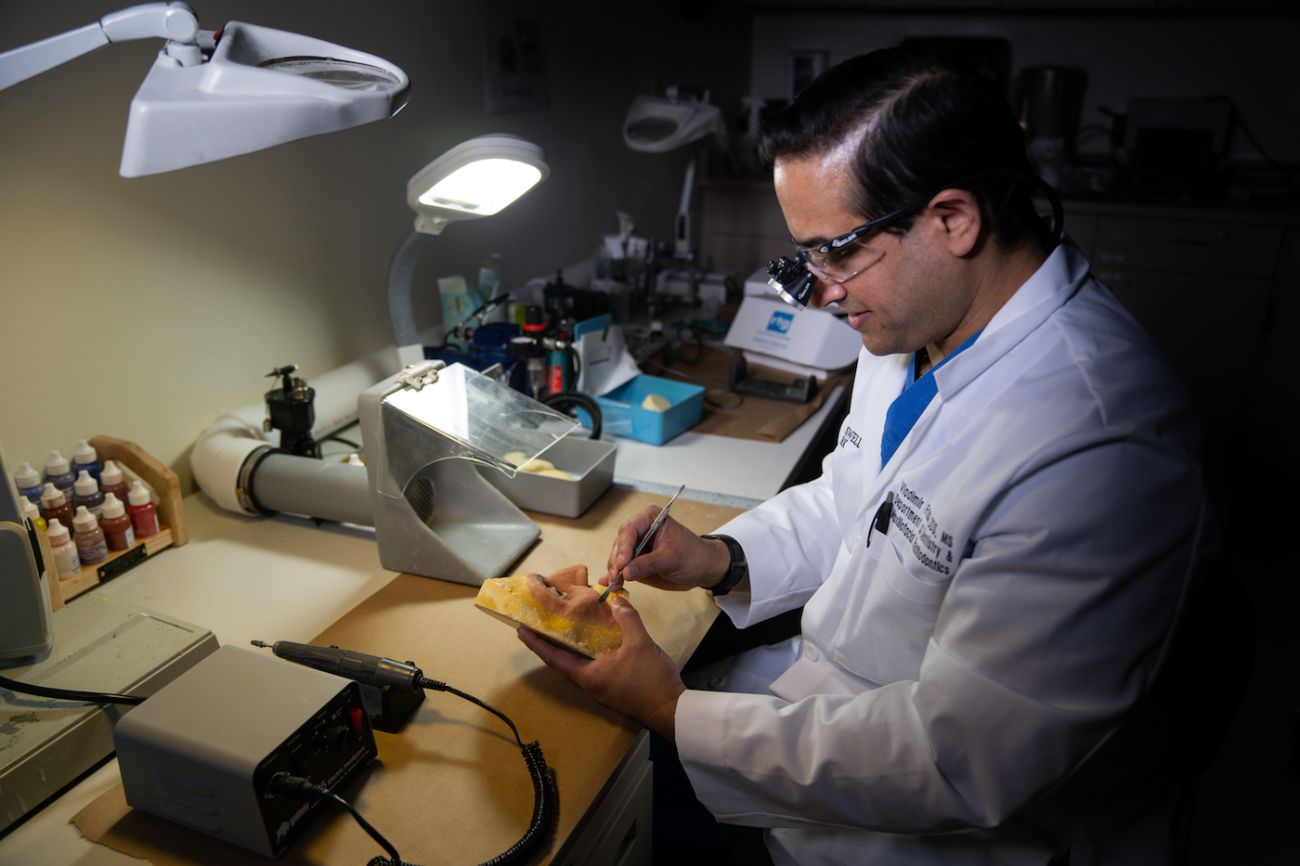Why dental care is important for cancer patients
Dentistry & Maxillofacial Prosthetics Center
You will need a referral from your Roswell Park physician or treatment center.
Hospital, 3rd floor
Monday-Friday, 8 a.m-4 p.m.
Good oral health is important to prevent or minimize complications that could jeopardize your ability to tolerate cancer treatment, meet nutritional requirements, or preserve quality of life.
Patients should see a dentist prior to the start of cancer treatment — ideally two weeks before beginning radiation or chemotherapy treatments — in order to maintain good oral hygiene and treat any dental infections. Untreated infections could cause delays in your cancer treatment. If you are already in treatment, see us as soon as possible.
Some cancer types — such as oral, jaw and other head and neck cancers — directly impact the mouth and teeth. Other cancers involve treatments — such as chemotherapy, radiation to the head and neck areas, or blood and marrow transplant — that increase risk for oral complications such as:
- Mouth sores, infections
- Cavities (caused by reduced saliva)
- Tooth loss
- Tooth sensitivity due to loss of minerals from the teeth
- Dry mouth (xerostomia) caused by damage to your salivary glands
Dental services
Roswell Park’s dentists are highly trained in addressing the complex and unique dental and oral health needs of cancer patients and survivors. Our team includes general dentists and implant and temporomandibular joint specialists along with other dental staff who work closely with surgeons, medical and radiation oncologists, and speech and language pathologists to provide timely, coordinated care for cancer patients.
We provide a full comprehensive menu of general dental services, including cleanings and restorations, root canals, tooth extractions, and provide dentures and partials. Our team will make sure your appointments take place at appropriate times in your treatment schedule in order to provide:
- Comprehensive oral health assessment (required before certain treatments)
- Dental management for patients undergoing blood or bone marrow transplants
- Prevention and treatment of oral side effects from chemotherapy and radiation treatment
- Treatment of existing dental conditions, such as infections or problem teeth
- Evaluation of your dentures and appliances for comfort and fit
- Prevention and oral care protocols
Maxillofacial prosthetics services
After treatment, patients with head & neck cancers may need prosthetics — artificial replacements, either inside or outside the mouth, for areas that were surgically removed. Prosthetics can be cosmetic (to improve the way you look) or functional (to restore your ability to speak or swallow, for example).
Maxillofacial prosthetics is a sub-specialty of prosthodontics that rehabilitates head and neck defects beyond the immediate oral region. The most common procedures performed by a maxillofacial prosthodontist at a cancer center are the restoration of missing jaw or facial structures. We perform surgical placement of implants to support or retain prostheses and create devices to aid the delivery of surgical or radiation treatment. Some of the prostheses we provide include:
- Upper or lower jaw replacement with removable prostheses
- One day jaw reconstruction with surgically implanted prostheses
- Replacement of missing eye, ear or nose with craniofacial implants
- Somatic prostheses like breasts or fingers
Our team will evaluate your needs before treatment, create and custom-fit your prostheses, and work closely with your surgeons to ensure that your physical appearance and abilities will remain as close as possible to the way they were before treatment.
Delays in adequate rehabilitation have major consequences, including deficient speech and swallowing as well as the psychosocial issues of a visibly missing a body part. Roswell Park considers both the patient’s medical status as well as the urgency of the procedure involved and aims to provide treatment with the fewest number of visits.

